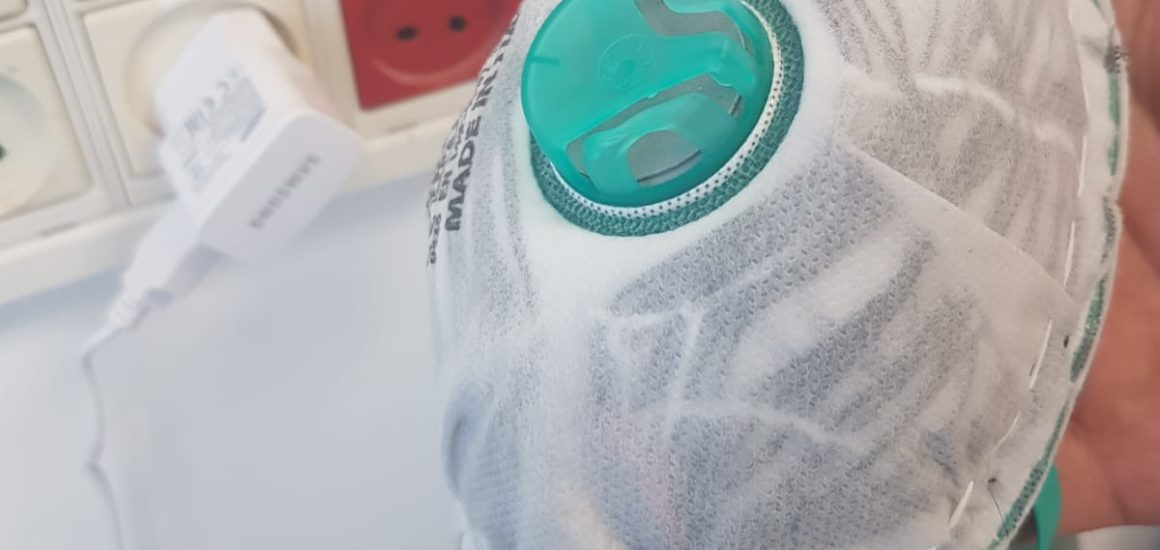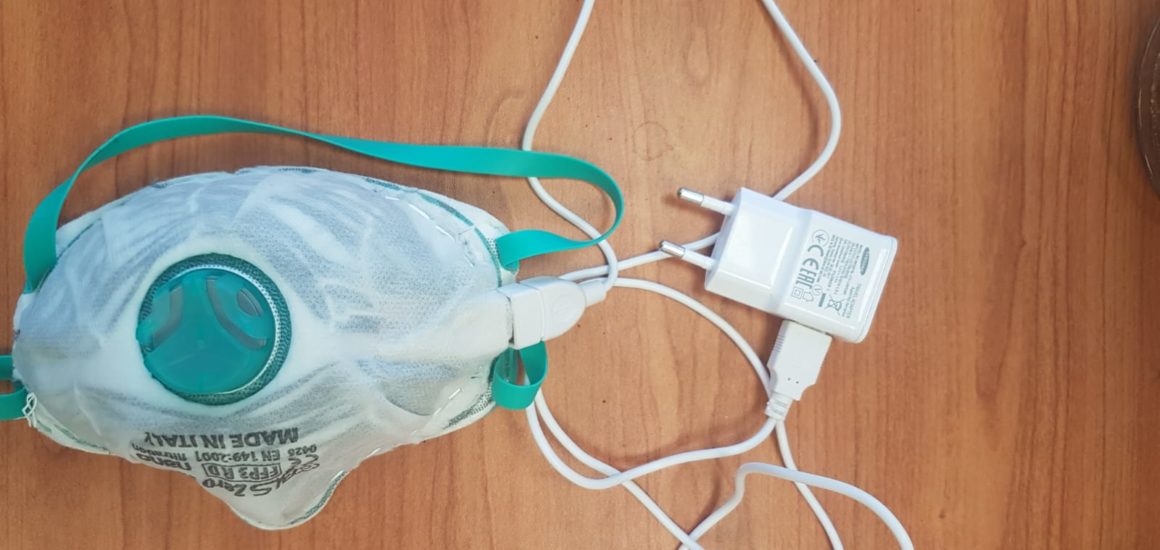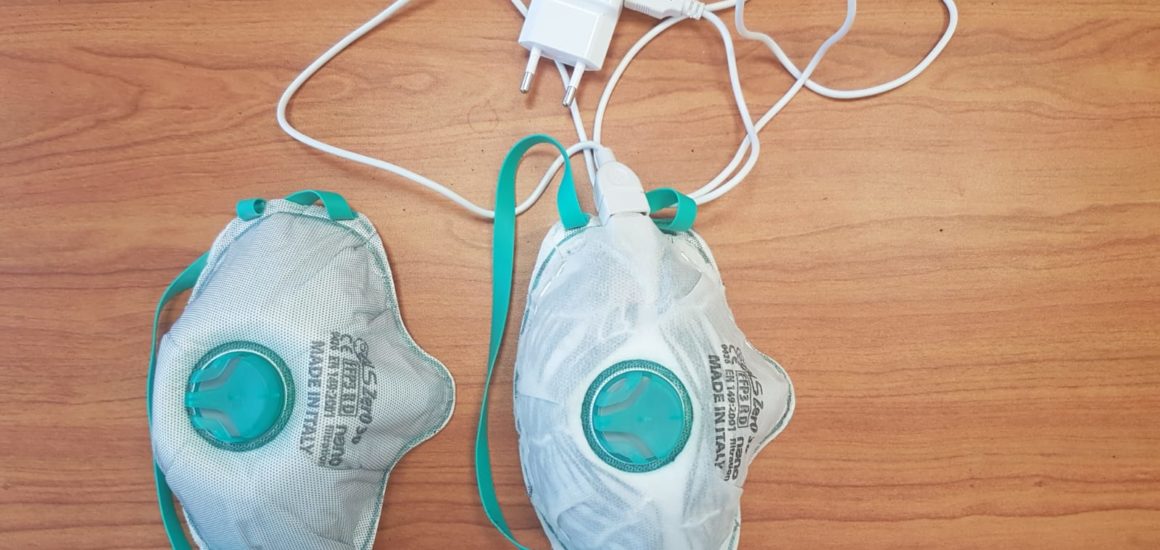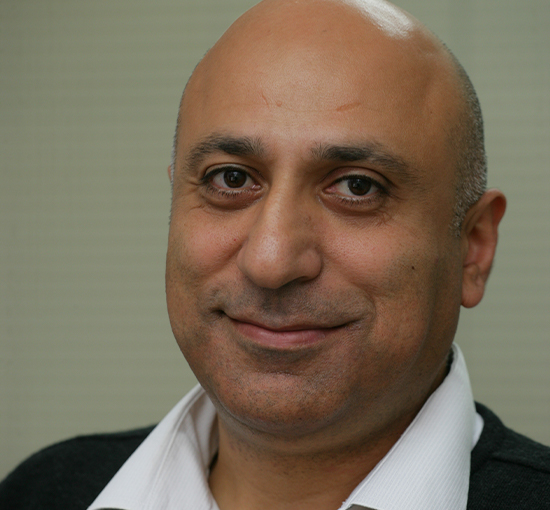Technion Researchers Develop Self-disinfecting Reusable Protective Face Mask
May 26, 2020
Researchers from the Technion Faculty of Materials Science and Engineering have developed a self-disinfecting, reusable protective face mask. The disinfection process occurs when a layer of carbon fibers in the mask is heated using a low current source, such as an electric mobile phone charger. A patent application for the invention has been submitted in the United States.
Due to the coronavirus pandemic, demand for protective face masks has sky-rocketed in recent months. Wearing masks is now a requirement, along with social distancing and hygiene measures. There is a wide range of masks available, from homemade cloth masks to the N95 masks used by medical professionals and frontline responders. Authorities insist on the correct usage of masks, which means replacing them daily, even if they are kept clean and dry during the day.
These regulations, along with the urgent need to provide masks for the medical staff caring for coronavirus patients, has led to a surge in demand for these masks and a search for manufacturers and suppliers. In the U.S., for example, approximately 3.5 billion masks are required in order to protect against an acute epidemic – 100 times more than the number of masks readily available. An immediate shortage of masks also occurred in Israel and was accelerated when the Ministry of Health announced that mask-wearing is mandatory.
Professor Yair Ein-Eli, Dean of the Faculty of Materials Science and Engineering, developed a reusable face mask that can be heated in a controlled manner – a process that destroys viruses that have accumulated on the mask – and renders it reusable. The new technology is based on an inner layer of carbon fibers spread within the mask in a homogeneous manner. When the layer of fibers is heated using a low current (2 amps) from a readily available source – such as a mobile phone charger, USB connection, or other mobile electronic device chargers – the viruses are destroyed.
Prof. Ein-Eli’s research group created the mask prototype and tested it together with Professor Debbie Lindell and Professor Oded Beja from the Faculty of Biology. A patent was submitted in the U.S. on March 31, and the research group is currently discussing commercialization with industrial companies.
For more than a century, the Technion – Israel Institute of Technology has pioneered in science and technology education and delivered world-changing impact. Proudly a global university, the Technion has long leveraged boundary-crossing collaborations to advance breakthrough research and technologies. Now with a presence in three countries, the Technion will prepare the next generation of global innovators. Technion people, ideas and inventions make immeasurable contributions to the world, innovating in fields from cancer research and sustainable energy to quantum computing and computer science to do good around the world.
The American Technion Society supports visionary education and world-changing impact through the Technion – Israel Institute of Technology. Based in New York City, we represent thousands of US donors, alumni and stakeholders who invest in the Technion’s growth and innovation to advance critical research and technologies that serve the State of Israel and the global good. Over more than 75 years, our nationwide supporter network has funded new Technion scholarships, research, labs, and facilities that have helped deliver world-changing contributions and extend Technion education to campuses in three countries.



